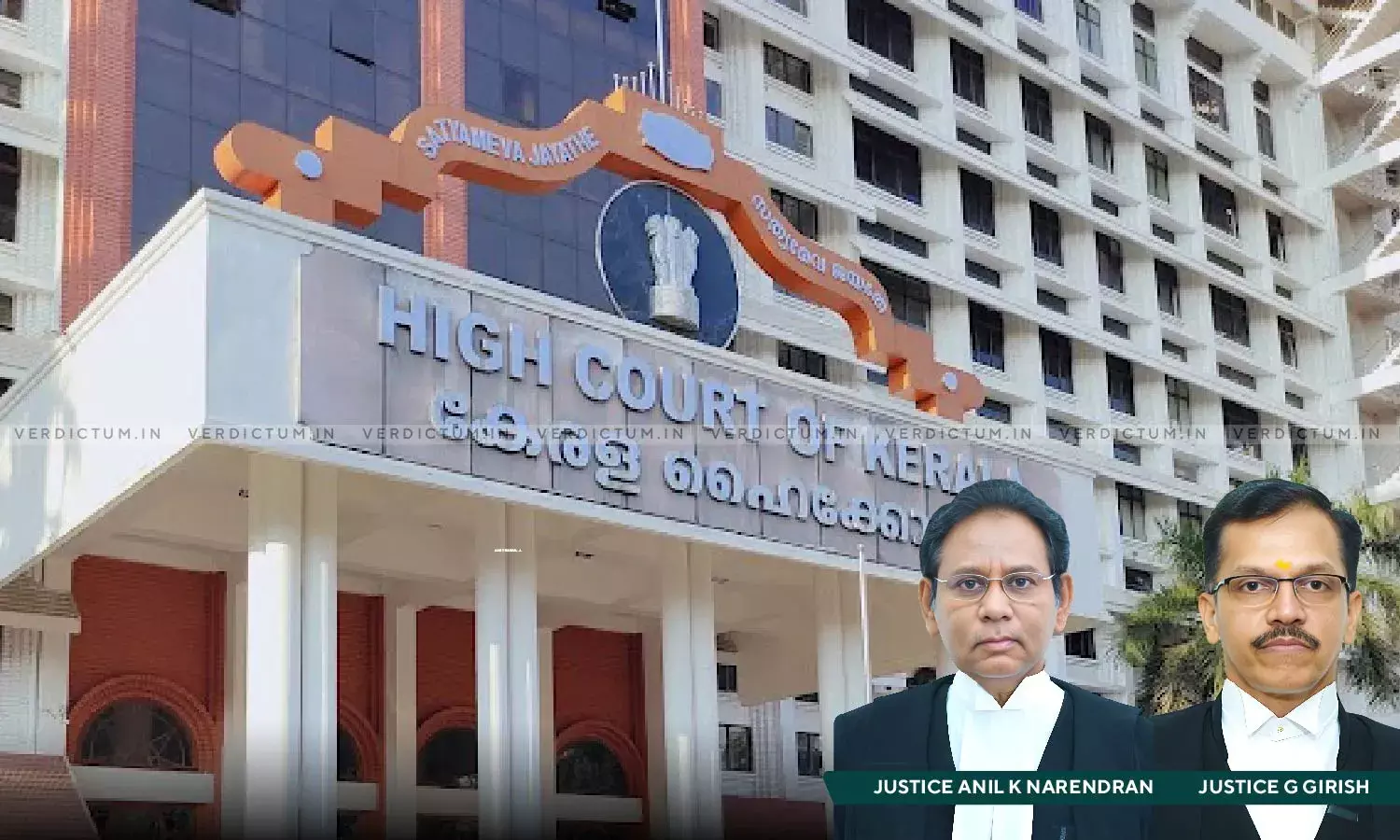Court Cannot Compel Child To Live With Such Parent Who Is Totally Unacceptable To Him: Kerala HC
The Kerala High Court said that it is not possible for the court to pass an order compelling the child to live with such parent who is totally unacceptable to him/her.
The Court was dealing with a writ petition filed by a mother of a boy aged 13 years, seeking a writ of habeas corpus.
A Division Bench of Justice Anil K. Narendran and Justice G. Girish observed, “… the legal rights of the parties concerned as per their personal law to have custody of the child, is not having much significance while this Court is dealing with the question as to the order of custody to be passed in a writ petition seeking writ of habeas corpus. If it is found that, in a given case, if an order directing the custody of a child with a parent is likely to be detrimental to the interest of that child, especially when the child is of advanced age, and having considerable maturity in mind to decide his future course of action, it is not possible for this Court to pass an order compelling that child to live with such parent who is totally unacceptable to him.”
The Bench further said that while dealing with the writ of habeas corpus relating to the custody of children, the paramount consideration should be the welfare of the children.
Advocate Jacob Sebastian appeared for the petitioner while Addl. PP P. Narayanan and Sr. Government Pleader Rashmi K.M. appeared for the respondents.
In this case, the petitioner via writ petition under Article 226 of the Constitution, sought a writ of habeas corpus as she was the mother of the detenu, a boy aged 13 years. She had re-married after the dissolution of her marriage with the father of the detenu. During the wedlock, she gave birth to a baby girl in December 2023 and the father of the detenu (petitioner’s previous husband), who was employed in Dubai, had passed away in October 2023. The detenu was under the care and protection of his father till the death of his father and earlier, the detenu remained in Dubai along with his father, and he was undergoing his studies. The detenu and his father came to their home village in the year 2023 once it was known that the detenu’s father was afflicted with incurable cancer.
Till the death of the petitioner’s former husband (detenu’s father), the detenu continued his studies in a school at Thrissur. However, after the demise of his father, the detenu was shifted to Dubai and taken care of by the respondents, who were the brother-in-law, sister and sister’s daughter respectively of the detenu’s father. Alleging that the detenu was taken abroad in violation of the injunction order of the Family Court, Palakkad, and that the detenu was being kept under the illegal custody of respondents, the petitioner moved the writ petition, seeking a writ of habeas corpus, directing the production of the detenu before the High Court.
The High Court in view of the above facts noted, “… the opinion of the Psychologist who conducted family counselling as per the direction of this Court, is also that it may not be desirable for the detenu to stay with his mother, and her present husband and child. … It is not possible to blame the petitioner for opting for a second marriage immediately after the dissolution of her marriage with the father of the detenu on the basis of any concepts of morality or lack of concern to the well-being of the progeny born in her earlier marriage and the emotional feelings of that child.”
The Court also took note of the fact that the detenu is likely to suffer emotional trauma leading to disruption of his studies and peace of mind if he is compelled to live with the mother.
“The respondents 6 to 8 with whom the detenu is presently living comfortably and peacefully and pursuing his studies in a good manner, shall continue to take care of him unless there is an order from a competent court exercising jurisdiction on minority and guardianship matters, to hand over the custody of that child to the petitioner”, it ordered.
The Court concluded that the request of the petitioner to have custody of the detenu cannot be entertained for a writ of habeas corpus.
Accordingly, the High Court dismissed the writ petition.
Cause Title- Dr. Athulya Asok v. The State Police Chief & Ors. (Neutral Citation: 2024:KER:26037)
Appearance:
Petitioner: Advocates Jacob Sebastian, Winston K.V., and Anu Jacob.
Respondents: Addl. PP P. Narayanan, Sr. Government Pleader Rashmi K.M., Advocates Abhilash K.N., Sunil Nair Palakkat, Rithik S. Anand, Rishi Varma T.R., K.M. Tintu, Anu Paul, and Sreelakshmi Menon.




